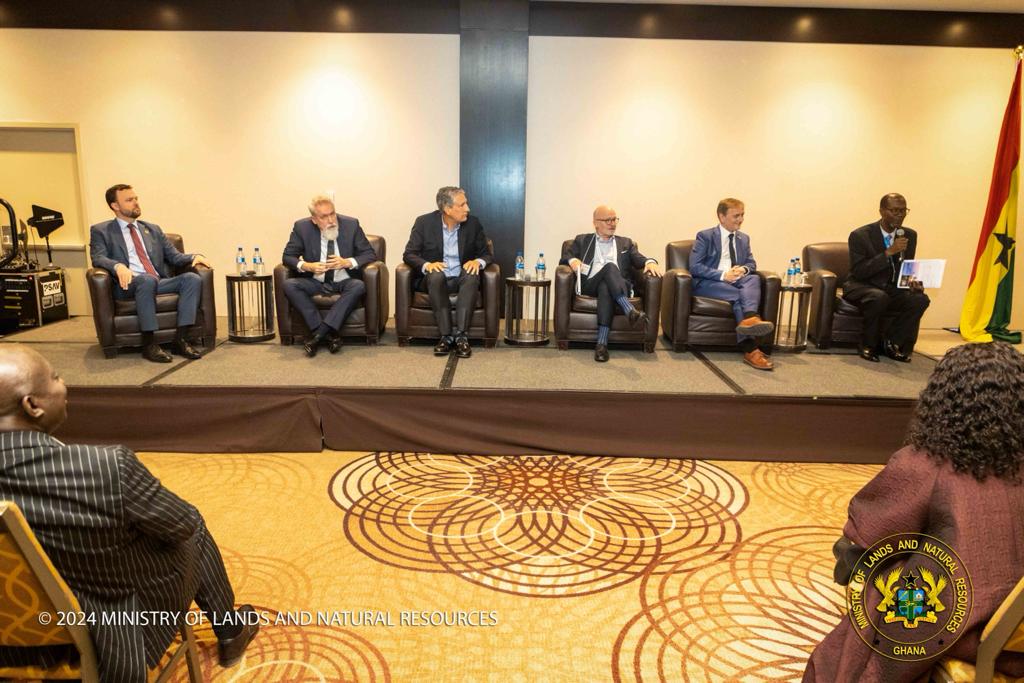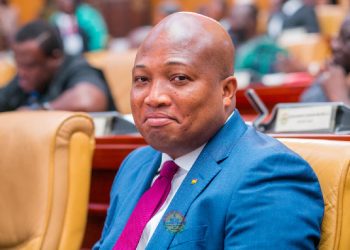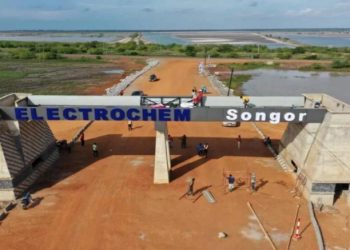Ghana’s burgeoning and stable democracy, ever-improving business environment, and dramatic shift in policy from mineral discovery to value addition, as well as the fledgling green mineral market, are elements that make the country the ultimate and consummate destination for investors, Lands Minister Samuel A. Jinapor has said.
According to Mr. Jinapor, the government has managed to position Ghana as the perfect place for investment through initiatives aimed at “unleashing prosperity for our people, in an environment that is equitable to all stakeholders, particularly investors.”

Addressing participants at the country spotlight session of the Prospectors And Developers Association Of Canada (PDAC) Convention on Tuesday, March 5, 2024, the Minister explained that the government has set out to diversify the mineral resources by ensuring the responsible and sustainable exploitation of hitherto untapped mineral resources such as Lithium.
He made the assertion that the government views green minerals as the cornerstone for Ghana’s metal industry and is thus pursuing collaborations with the private sector to ensure their effective harnessing.
“Particularly, the Government of Ghana has identified the development of green minerals as strategic metal development. The government is, therefore, seeking strategic partnerships with the private sector for the exploitation of these minerals. Last year, Ghana’s Cabinet approved a policy for the exploitation and management of these minerals, which includes investment incentives and the assurance of optimal return on investment.”
“Based on this Policy, we have granted a Mining Lease to Atlantic Lithium, a company listed on the Australian and London Stock Exchanges, to commence construction, subject to parliamentary ratification, for the mining of lithium, after the company successfully completed exploratory works and feasibility studies. Available data shows large deposits of lithium from the northern part of the country to the south, and investors are welcome to partner with the Government for the exploitation of these minerals.”
Touching on the theme “Leveraging a Century of Mining to Enhance Value Addition for the Development of Ghana,” Mr. Jinapor noted that Ghana is already on the path to becoming the mining hub in Africa through the establishment of refineries that will add value to the raw minerals.
“The second pillar is beneficiation and value addition to minerals produced in our country, to ensure a mutually beneficial situation for both Government and investors. Again, the Government of Ghana has been working to create the operating vehicles to partner with the private sector to promote value addition.
“We have, therefore, established the Ghana Integrated Aluminium Development Corporation (GIADEC) and the Ghana Integrated Iron and Steel Development Corporation (GIISDEC), both state agencies, to work with the private sector to promote and develop integrated aluminum and iron and steel industries in the country,”.
Touching on what he terms to be the final pillar of Ghana’s tripartite mining policy, he stated that the government continues to engage mining companies in the country to employ more competent Ghanaian hands to ensure employment while protecting the interests of the mining companies.
“The final pillar is local content and local participation, to ensure that Ghanaians, who are by law the owners of our mineral resources, benefit from the mining industry. But we do this in a manner that is not detrimental to the interests of investors; for we recognize that investors are our natural partners working towards the same goal; that is, the exploitation of the mineral resources for our collective benefit.
“In acknowledgement of the critical importance of human resource capacity, the Government of Ghana has built credible training institutions that have produced the manpower for the sector in Ghana, with major spillover to virtually all mining economies, globally.“
At a panel discussion aimed at showcasing Ghana’s positive investment climate, some notable mining investors praised the country’s rule of law, stable democracy, right regulatory regime, and cordial relationships among stakeholders based on mutual respect and the expectation of equitable distribution of benefits obtained as positive factors attracting their investment into the country.















